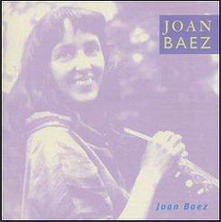 "
Dana Dana "是 1941 年發表的歌曲,原本是一首男女合唱曲。它是猶太裔的 Aaron Zeitlin
艾隆澤特霖創作的意第緒語舞台劇《 Esterke 》的主題曲,由烏克蘭籍猶太裔 Sholom Secunda
沙隆塞康達作曲。(意第緒語是歐洲猶太人的通用語言,屬於日耳曼高地語言,但用希伯來字母拼寫。) "
Dana Dana "是 1941 年發表的歌曲,原本是一首男女合唱曲。它是猶太裔的 Aaron Zeitlin
艾隆澤特霖創作的意第緒語舞台劇《 Esterke 》的主題曲,由烏克蘭籍猶太裔 Sholom Secunda
沙隆塞康達作曲。(意第緒語是歐洲猶太人的通用語言,屬於日耳曼高地語言,但用希伯來字母拼寫。)沙隆塞康達自己曾將歌詞翻譯成英文,但沒有引起迴響。如今流傳的英語版本,是 50 年代中期由 Arthur Kevess 和 Teddi Schwartz 翻譯,在 60 年代被民謠歌后瓊拜雅演唱錄音之後,才成為一首傳唱久遠的歌曲" Donna Donna 多娜多娜 "。 一般認為,歌詞中小牛和農夫的對話反映了猶太人在二次世界大戰前低微的社會地位,小牛待宰的命運也暗示猶太人為德國納粹政權下的犧牲者,歌曲隱含的反戰信息不言而喻。 這首歌後來又被灌錄為許多不同語言的版本,包括有德語、法語、俄語、希伯來語、日語和越南語等。至於歌曲中一再吟唱的 Dona Dona 代表什麼意思?有一個說法說它是 Adonai 的變音,而 Adonai 就是上帝的猶太名字。在瓊拜雅的演唱版本中,Dona Dona 被改為 Donna Donna。 以下文字請參考,取自http://www.mplus.com.tw/article/530 民謠小調〈多娜多娜〉在上個世紀 60 年代的美國家喻戶曉,必須歸功於民謠歌手瓊拜亞的翻唱。在她的版本裡,副歌一再重複的「多娜多娜」,聽起來比較像是「搭哪搭哪」。直到現在還是沒人知道究竟這首歌中的多娜多娜是什麼意思,它的確也有不少唱成搭哪搭哪的版本,因此有人流傳這是猶太人的「神」的別稱。 雖然是寫待宰小牛與農夫的對話,但其實似乎更暗示猶太人的命運。由兩位猶太創作者在二戰尚未結束的 1940 年寫成,讓人覺得與納粹大屠殺有著很大的關聯。這首歌在亞洲許多國家都很受歡迎,尤其是日本跟越南。不過也曾在韓國被禁,因為同情共產主義的學生間流行唱著這首歌。 至於「多娜多娜」的意思,有以下幾種說法。一是「用以吆喝牛隻前進的聲音」,二是跟「啦啦啦」一樣是純粹裝飾用的聲音,三是土耳其語的「母牛」之意,四是常見猶太女子名「Dana」。又為何燕子的雙翅只能歡笑「一半的夏夜」呢?有人說,因為猶太教經典《妥拉》(Torah)的教誨有言,凡是夜晚皆分成上半夜與下半夜,上半夜用來反省白日的所作所為,並不適合歡笑。 |
|
意第緒語原文歌詞
אויפֿן
פֿירל
ליגט
דאָס
קעלבל,
לאַכט
דער
װינט
אין
קאָרן,
דאָנאַ,
דאָנאַ,
דאָנאַ,
דאָנאַ,
-שרײַט
דאָס
קעלבל,
זאָגט
דער
פּויער, לאכט דער װינט אין קאָרן ...... בלידנע קעלבער טוט מען בינדן,און מען שלעפּט זײ און מען שעכט, װער ס'האָט פֿליגל, פֿליט אַרױפֿצו, איז בײַ קײנעם ניט קײן קנעכט. |
作曲者 Sholom Secunda 的英譯歌詞
On a wagon
bound and helpless
The wind
laughs in the cornfield
Dona, dona,
dona, dona
Now the calf
is softly crying The wind laughs in the cornfield ... Calves are born and soon are slaughteredWith no hope of being saved Only those with wing like swallow Will not ever be enslaved |
Kevess & Schwartz 的英譯歌詞
On a wagon
bound for market
How the winds
are laughing
Dona, dona,
dona, dona
"Stop
complaining," said the farmer How the winds are laughing ... Calves are easily bound and slaughteredNever knowing the reason why But whoever treasures freedom Like the swallow has learned to fly |